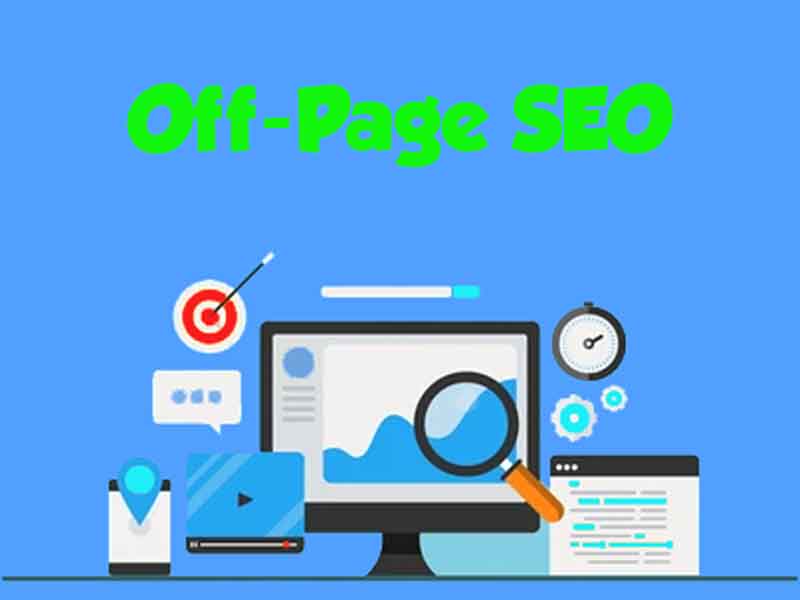Off-Page SEO: A Comprehensive Guide to Enhancing Your Website’s Online Visibility
In the realm of Search Engine Optimization (SEO), Off-Page SEO plays a pivotal role in determining your website’s authority, trustworthiness, and overall visibility. While On-Page SEO focuses on improving the elements within your website, Off-Page SEO involves external activities that enhance your site’s ranking on search engine result pages (SERPs). This comprehensive guide will explore key Off-Page SEO strategies to help you effectively boost your website’s online presence.
What is Off-Page SEO?
Off-page SEO encompasses all actions taken outside your website to influence its search engine ranking. These activities include acquiring high-quality backlinks, increasing brand mentions, enhancing social media interaction, and building a robust online reputation. Essentially, Off-Page SEO is about positioning your website as a trusted and authoritative resource within its niche—something search engines reward with higher rankings.
Why is Off-Page SEO Important?
Off-page SEO is crucial for signaling to search engines how other websites and users perceive your content. Here are several reasons why it’s an integral part of your SEO strategy:
- Improves Rankings: Backlinks and brand mentions from reputable sources demonstrate to search engines that your website is trustworthy and valuable.
- Increases Domain Authority: A higher domain authority typically results in improved keyword rankings.
- Generates Referral Traffic: External links from other websites drive targeted traffic to your site.
- Builds Brand Recognition: Social media engagement and brand mentions contribute to greater visibility and credibility.
- Strengthens Trust: Positive online reviews and endorsements enhance trust among both users and search engines.
Key Components of Off-Page SEO
-
Backlink Building Backlinks are fundamental to Off-Page SEO. These are links from one website to another, and search engines like Google treat quality backlinks as votes of confidence in your content’s value.
- Guest Blogging: Contribute informative content to authoritative blogs within your niche, and include links back to your site.
- Broken Link Building: Find outdated or non-functioning links on other sites and suggest your content as a suitable replacement.
- Skyscraper Technique: Develop more comprehensive versions of popular content to attract natural backlinks.
- Resource Link Building: Reach out to websites with resource pages related to your industry, requesting inclusion.
-
Social Media Marketing Although social media signals do not directly impact rankings, they expand the reach of your content and foster engagement, indirectly benefiting your Off-Page SEO.
- Share Content that Sparks Engagement: Likes, comments, and shares.
- Build a Community: Engage with followers and respond to their questions.
- Incorporate Relevant Hashtags and Mention Influencers: Boost your content’s reach.
-
Online Reviews and Reputation Management Customer reviews play a vital role in building trust and credibility, especially for local businesses.
- Claim Your Profiles: Platforms such as Google My Business, Yelp, and Trustpilot.
- Encourage Positive Reviews: Ask satisfied customers to leave reviews.
- Respond to Negative Reviews: Quickly and courteously to preserve your brand’s reputation.
-
Content Marketing Content marketing isn’t confined to your website. Publishing high-quality content on external platforms can attract backlinks and boost your brand’s credibility.
- Create and Share Infographics: On infographic directories.
- Publish Research-Driven Articles or Case Studies: On authoritative platforms.
- Use Video Marketing: Platforms like YouTube and Vimeo to extend your content’s reach.
-
Influencer Outreach Collaborating with influencers in your industry can significantly boost your brand’s visibility and authority.
- Find Relevant Influencers: Whose followers match your target audience?
- Offer Free Products or Services: In exchange for mentions or backlinks.
- Develop Long-Term Relationships: For sustained benefits.
-
Local SEO and Citations For businesses targeting a local audience, Local SEO is a key part of Off-Page SEO.
- List Your Business on Local Directories: Google My Business, Bing Places, and other local platforms.
- Maintain NAP Uniformity: Name, Address, and Phone Number across all online directories.
- Encourage Customer Feedback: On platforms such as Google and Yelp.
-
Forum Participation Engaging in niche-specific forums can drive traffic and establish your authority in the industry.
- Join Relevant Forums: Such as Reddit or Quora.
- Provide Valuable Answers: To questions without being overly promotional.
- Add Links to Your Website: Only when they provide value and are contextually appropriate.
-
Public Relations (PR) Effective PR strategies can result in mentions of your website on authoritative news outlets and blogs, enhancing your Off-Page SEO.
- Issue Press Releases: About new products, services, or milestones.
- Leverage HARO (Help A Reporter Out): To connect with journalists looking for expert insights.
- Partner with Media Outlets: For co-branded campaigns to increase exposure.
Monitoring and Measuring Off-Page SEO Success
To gauge the success of your Off-Page SEO efforts, track these key metrics:
- Backlink Profile: Use tools like Ahrefs or SEMrush to analyze your backlink quality and quantity.
- Domain Authority (DA): Track your site’s DA using tools like Moz.
- Referral Traffic: Monitor traffic coming from external websites via Google Analytics.
- Social Media Metrics: Keep track of shares, mentions, and engagement rates.
- Brand Mentions: Use tools like Google Alerts to monitor mentions of your brand across the web.
Common Mistakes to Avoid in Off-Page SEO
- Focusing on Quantity Over Quality: It’s more beneficial to acquire high-quality backlinks than to gather numerous low-quality ones.
- Neglecting Social Media: Ignoring social media engagement can hinder your brand’s reach.
- Using Black-Hat Techniques: Avoid tactics like buying links, submitting to spammy directories, or using private blog networks (PBNs).
- Relying on One Tactic: Focusing too heavily on a single Off-Page SEO strategy can limit your growth.
Conclusion
Off-page SEO plays a crucial role in your overall SEO strategy. By focusing on building high-quality backlinks, engaging with your audience on social media, managing your online reputation, and leveraging content marketing, you can significantly improve your website’s authority and rankings. Remember, consistency and quality are the keys to successful Off-Page SEO. Start implementing these strategies today to elevate your online presence and stay ahead of the competition.


